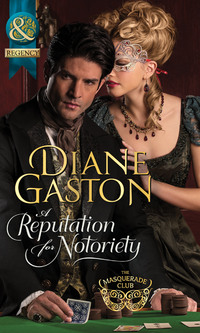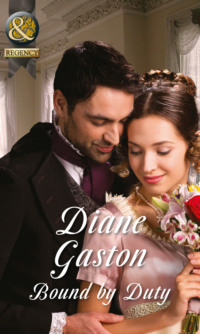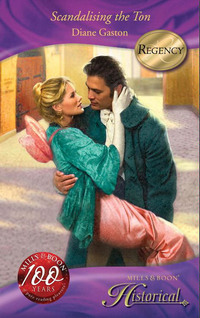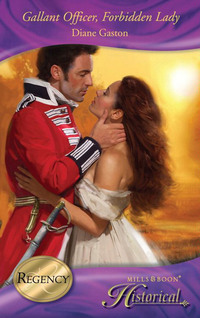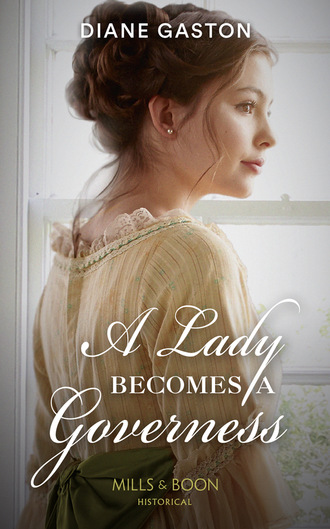
Полная версия
A Lady Becomes A Governess
Except Miss Tilson pulled more emotion from him than Lady Agnes ever had.
He stepped towards the governess and reached for her small bag. ‘You look fatigued. I will arrange a room for you and have a meal sent up to you.’
She gave him a stricken look that he did not understand, but he took her bag and she fell in step with him to the door of the inn.
When they entered the hall, the innkeeper’s eyes darted between them. ‘Welcome. A room for you, sir?’ His tone was uncertain.
‘Two rooms,’ Garret replied. ‘The lady will require a maid and a meal in her room.’
‘Very good, sir.’ The innkeeper bowed.
‘No!’ Miss Tilson broke in, her voice sharp. She immediately modified it. ‘No, please. I would prefer to eat my meal in the tavern.’
The innkeeper’s brows rose, as did Garret’s. She wished to expose herself in a public tavern? What sort of governess was she?
Garret frowned. ‘As you wish.’
The innkeeper cleared his throat. ‘Let me show you to your rooms.’
Garret followed behind the man and Miss Tilson as he led them up two flights of stairs and down a long hallway.
‘These two.’ The innkeeper gestured to two rooms across the hallway from each other. He opened each of the rooms and handed them their keys. ‘Shall I send a maid up now, ma’am?’ he asked Miss Tilson.
‘Not now,’ she replied. ‘Later. Perhaps nine or ten?’
‘Very good, ma’am.’ He bowed and left.
Garret placed his valise inside his room and his hat and gloves on a table, but he did not move from the doorway.
Neither did Miss Tilson.
She lifted her chin. ‘Lord Brookmore, I am of a mind you disapprove of my not eating in my room. If you wish it, I will do so.’
He folded his arms across his chest. ‘A public room can be a rowdy place, Miss Tilson. Not suitable for an unaccompanied woman.’ Not suitable for his nieces’ governess, he meant.
She lowered her gaze. ‘I did not think of that. I thought only to have people around me. To not be alone.’ Her voice cracked on her last word.
His insides twisted at her emotion.
She raised her eyes again. ‘When I am alone, the shipwreck comes back to me.’
The shipwreck. Of course she would be reliving the shipwreck. Before yesterday she’d been too feverish to become accustomed to the memories.
‘Would you accompany me to the tavern, then?’ she asked. ‘I would not require you to make conversation. Simply being among people—even rowdy people—would—would—distract me.’
How often after a battle did he seek the companionship of his fellow officers? To be alone with one’s thoughts simply repeated the agony. Companionship, drink and carousing kept memories at bay. He ought to have realised this young woman would feel such a need, as well.
Truth be told, he was trying not to think of her that deeply.
Her lips thinned. ‘Forgive me. It was wrong of me to ask.’ She turned to enter her room. ‘Have my dinner sent up. That will suffice.’
He crossed the hallway and seized her arm, dropping it as soon as she turned back, looking alarmed.
He straightened. ‘If you do not wish to dine alone, I will not compel you to do so. I will request a private dining room and you will be my guest.’
Her expression relaxed into a relieved smile. ‘Oh, thank you, my lord.’
He closed his door. ‘I will arrange it immediately.’
She touched his arm this time. ‘May I go with you?’
Her need for company was that strong? He nodded. ‘In that case,’ he said, ‘allow me a few minutes to rid myself of the dust of the road and we can seek a meal right away.’
Her smile grew. ‘Thank you, my lord.’
He washed his face and hands and brushed off his clothes. A glance in the mirror made him rub his chin, debating whether to take the time to shave. He decided against it. This was not a London drawing room and Miss Tilson was eager to be free of her solitude.
When he opened his door, she awaited him in the hallway. They walked together down the stairs through the hall to the tavern room.
The tavern room was everything Garret feared it would be. Loud voices, talking, laughing mingled with the clatter of dishes, tankards and cutlery. The air reeked of hops, cooked meat and male sweat. Men of all classes gulped from tankards of ale. Some enjoyed the company of the few women who shared booths with them. Serving girls threaded their way through the crowd.
Garret sought out the publican. ‘We seek a private dining room,’ he yelled over the din of the crowd.
The man’s bald pate gleamed with perspiration. His white apron covered a swelled girth. ‘This way, sir!’
Garret held Miss Tilson’s arm as he followed the publican through the room. Men definitely glanced her way, their expressions curious, appreciative or licentious. He pulled her a little closer, feeling protective. Had he ever felt protective of Agnes?
Unfair comparison. He’d never walked Lady Agnes through a rowdy tavern and he could not imagine ever doing so.
Miss Tilson trembled beneath his touch.
He released her as soon as they reached the private room, hoping she had not thought his actions too forward. He’d felt protective. Nothing more.
The private dining room was simply furnished with a table, four chairs and a sideboard. There was a window with brown curtains and a small fireplace with a few pieces of coal glowing on the grate. The walls were bare.
‘What drink do you desire?’ the publican asked as he lit two lamps from a taper. ‘I’ll have the serving girl bring them directly.’
‘Ale for me,’ Garret said. Not a drink for a viscount, but he was parched. ‘Miss Tilson?’
She gave him a sideways glance. ‘Claret?’
He turned to the publican. ‘A decanter of claret for the lady.’
The man rubbed his hands. ‘And food? We have char fish and a mutton stew and pigeon...’
‘Not fish!’ Miss Tilson cried.
The publican eyed her with a surprised look.
Garret turned to her. ‘Stew, then?’
She nodded.
He addressed the publican again. ‘We will both have the stew. And bring some bread and cheese, as well.’
‘Very good, sir.’ The man bowed and left the room.
When he closed the door behind him, Miss Tilson lowered herself into a chair at the table. She expelled a nervous breath.
Garret inclined his head towards the door. ‘You see why you could not come alone.’
She took another breath, pressing her hand against her chest. ‘It was so odd. The voices. All the men. Walking through that room I thought I was on the deck of the ship again. I actually saw it.’ She looked up at him, her forehead creased. ‘Now you will think me mad.’ She pressed her temples. ‘I think myself mad.’
He settled in the chair adjacent to her. ‘Some soldiers relive a battle after it is all done. As if they were there.’
She frowned. ‘I don’t understand.’
‘They hear the sounds of the battle again. Even think they see the battle.’
Her puzzled eyes turned hopeful. ‘Do you think it could be the same?’
‘It could be.’ He looked away and drummed his fingers on the table.
Seated this close, under the lamplight, her eyes—their irises thin brown rims circled in green—had captivated him, created a yearning inside him. Perhaps it was the changing emotion he saw in those eyes. Perhaps he was drawn to her because she’d suffered and she knew what it was like to survive when so many others died.
But he could not desire her. How could he desire her? She was a governess. In his employ. And he was a viscount now. A governess was beneath him.
What was he thinking? He could not desire her. He was betrothed.
He pressed his lips together, feeling as confined as if the walls were closing in on him.
She shifted in her chair. ‘Have I annoyed you?’
She had no idea that annoyance was not his problem. His problem would be forgetting who he was now and thinking he was a soldier again.
‘Not at all,’ he responded perfunctorily.
She folded her hands in her lap and kept her gaze averted. It felt to him as if she held herself in check and he wondered what he would see if she set herself free. He laughed inwardly. Apparently they were both confined, both unable to be who they were inside.
But he did not need this sense of kinship with her, fuelling that inexplicable yearning inside him. It was not physical desire—or, more accurately, not only that.
How odd that her looks should captivate him when she did not meet society’s ideal of beauty.
Lady Agnes certainly did.
Miss Tilson was too tall, too strong-featured, but somehow not plain. It was difficult for his gaze not to be riveted upon her face and her changing expressions.
She took a breath, as if trying to clear away whatever had been in her mind. ‘So you were in the army?’
He shrugged. ‘I was a younger son, until my brother died.’ He blinked away his own intrusive memory.
The polite smile she’d pasted on her face faltered a bit. ‘What regiment?’
She seemed determined to make conversation. ‘The 28th.’
His father had purchased a lieutenancy for him when he turned eighteen. And why not? He’d not been suited for anything else, or so he’d always been told. As part of the 28th, he’d been in nearly every major battle of the war with Napoleon, from Egypt to Toulouse.
‘Were you at Waterloo?’ she asked.
He gritted his teeth for a moment. ‘No.’
He could have stayed in Belgium with his regiment, when he inherited the title, but battles were unpredictable matters and he dared not risk being killed and leaving his nieces to the mercy of relatives so distant as to have no care for them.
He’d grieved not being a part of the Waterloo battle almost as much as he’d grieved his brother’s death. Many of his men died at Waterloo. He should have been leading them. Protecting them.
‘On the Peninsula, then?’ she persisted.
‘Yes. On the Peninsula. And in France.’ His regiment had been a part of that bloody pursuit of the French as they retreated from the Pyrenees into France.
Her brow furrowed. ‘And some soldiers relive battles afterwards, the way I relived the shipwreck?’
Apparently the shipwreck was never far from her mind. ‘Yes. Many. I expect if I heard cannon right now, it would put me right back into battle.’
‘It would?’
There was a rap on the door and a serving girl entered with their drinks and food. After she left, Garret took a generous gulp of ale and plunged his spoon into the stew.
Miss Tilson nibbled on a piece of bread, a pained expression on her face.
It tugged at his sympathy. ‘Talk about it.’
She glanced up. ‘About what?’
‘About the shipwreck,’ he explained. ‘It helps.’
Although it might be more help to him to keep his distance from this young woman—his nieces’ governess.
* * *
Rebecca glanced away. She wanted desperately to talk about the events crowding her head and overwhelming her senses, but ought she to do so?
Claire Tilson would have declined this invitation, she was sure. Indeed, Claire Tilson would not have fished for this conversation at all. She would have remained in her place. She would have gone to her room as the Viscount requested, even if spending more hours alone would have been unendurable.
Well, she would be Claire Tilson later. Right now she needed to be Rebecca Pierce, on an equal footing with this gentleman and with a great need to talk.
She faced him. ‘Shortly after we woke that morning, the storm began and we were told to remain in our cabins.’
‘We?’ His brows rose.
She must be careful how she spoke. ‘I—I befriended another young lady. We spent most of the voyage in each other’s company.’ And in each other’s clothes.
She described how the storm grew and how their alarm escalated. And how the gentleman came to take them on deck. She told him of the wave that washed Miss Tilson and the man off the deck.
She did not tell him of being pulled away from Nolan, her poor sick maid. Could she ever forgive herself for that?
She saw an image in her head of Nolan in her bed as the water rose around her. Rebecca covered her eyes.
‘Go on,’ his voice demanded.
‘I was dropped into a rowing boat. There was a mother and her children next to me, but then we saw the ship crash against the rocks and the rowing boat tossed us into the sea.’ She remembered the cold water all around her, not knowing which way was up, not being able to breathe. ‘I don’t remember anything else very clearly until waking up in the inn.’
What had happened to the mother and those dear little children? She could not bear thinking of them under the water. Could not bear thinking of their dead bodies floating to shore.
She glanced at Lord Brookmore, whose gaze did not waver.
She took a breath. ‘That is it. That is all.’
Did his eyes turn sceptical? She could not tell. ‘A harrowing experience,’ he said, more factually than sympathetically.
That was a good thing, though. Had he offered her comfort she might have broken down and turned into a watering pot the way she’d been yesterday.
He dipped his spoon into the bowl of stew, making her realise he’d refrained from eating while she told her story.
She ate a few bites, as well. ‘I don’t know why I was saved. Why me over so many others?’
She downed her glass of claret.
Lord Brookmore took a more leisurely sip of his ale. ‘There is no making sense of those matters, you know. In battle, good men die. And yet men like me live. There is no making sense of it.’
Of course. He must know more about death than she could ever know. ‘What do you mean “men like me”? Are you so bad, then?’ She tried for a light-hearted tone.
He faced her, a sad smile on his face. ‘There were times in my youth that my father was convinced of it.’ He poured her another glass of claret.
She took a sip. ‘I cannot believe it. You have been nothing but kind to me.’
He laughed drily. ‘I need a governess for my nieces.’
She pursed her lips. ‘I do not think a governess is so difficult to find. You could have sent for someone else and never have come looking for me.’
He met her gaze. ‘And how could I have explained to my nieces that, after losing their parents and their old governess, I could not be bothered to discover if their new governess survived a shipwreck?’
She lifted her chin. ‘A bad man would not have cared. I’ll not hear you speak of yourself so.’
He averted his gaze.
She finished the claret left in her glass. ‘Did it ever occur to you that you survived all those battles so that your nieces would still have you to care for them?’
His expression turned bleak. ‘How much better it would have been for my brother and his wife to live and me die.’
His words knocked the breath from her.
Because it would have made so much more sense for Claire to have survived instead of Rebecca. Claire had everything to gain by living. Rebecca, instead, had been facing a dismal future in a loveless marriage.
At least she knew there was another good reason she had decided to live Claire’s life for her. So Lord Brookmore would not have to tell his nieces that their new governess had died. He’d travelled all the way to Moelfre in the hopes that he would not have to tell them such news. She wasn’t going to let his efforts be for naught.
She just needed to learn to act a little like Claire and less like Rebecca. ‘Tell me about your nieces,’ she asked.
He shrugged. ‘They are aged seven and nine, but you probably know that.’
She knew nothing. ‘Their names?’
He peered at her. ‘Were you not provided their names?’
Oh, dear. She must be careful if this deception was to work.
‘It was in the letter—’ There must have been a letter. ‘But I fear, with all that happened, I’ve lost my memory for the details. I do apologise.’
He seemed to accept that—to her great relief. ‘Pamela is the elder. Ellen, the younger.’
Pamela and Ellen. She repeated to herself over and over.
He frowned. ‘I have not been present in their lives. I can tell you little else of them.’
She returned to her stew, even though she could no longer taste it.
They fell into a silence, broken only by the clink of spoons against the bowls. Her heartbeat accelerated. How was a governess supposed to handle this?
A governess, she suspected, would sit quietly, no matter how oppressive the silence, no matter how compelling the gentleman. But Rebecca was inclined to be outspoken, even when it was better to keep her mouth shut. Silence was torture to her.
The sounds of their eating grew louder and louder in this vacuum. She’d go mad if this continued much longer.
She knew how to end this. She’d received the training. After her brother discovered that her boarding school had educated her too liberally, he’d sent her back to England to a finishing school in Bath, so she knew very well how to engage a gentleman in conversation, even though it might be quite un-governess-like to use the skill now.
‘Do tell, my lord, about the house where your nieces live. Is it in a lovely part of the Lake District?’
‘All parts of the Lake District are lovely.’ He looked up from his stew. ‘Have you not been there?’
When his gaze reached her eyes, it made her insides flutter. She glanced away. ‘I never had the pleasure.’
He cocked his head as if in apology. ‘Of course. Why would you?’
She forced herself to meet his gaze again. ‘Tell me. What will I see?’
This time he glanced away and took a sip of ale before he spoke. ‘You will see mountains. They are green this time of year, but they’ll turn all shades of orange in autumn and white when winter comes. The lakes change colour, too, with the sky. From silver to blue to purple.’ He looked as if he were gazing at the landscape right now. ‘I have been to many places in the world, but none is as fine.’
She was moved by the suppressed emotion in his words. ‘I shall be eager to see it.’
He finished his ale and his voice turned flat. ‘You will not like the house.’
She felt a niggle of alarm. ‘Why not?’
He shrugged. ‘It is old.’
What family seat possessed a new house? She laughed softly. ‘I am in no position to complain. An old house. A new house. As long as I have a roof over my head.’
He did not seem to appreciate her attempt at levity. ‘I am hopeful you will find it tolerable. I do not want my nieces to lose another governess.’
And Rebecca needed a place to stay. A different life to live. Somehow she must make this work for everyone.
She’d figure it out in time.
She forced herself to smile. ‘Let us not worry at the moment, my lord.’ She gestured down at herself. ‘As I own nothing and have nowhere else to go, let us assume I will be happy as your nieces’ governess and that you will be happy with my services.’
She lifted her glass of claret as if in a toast.
* * *
Garret raised his empty tankard, more affected than he wanted to admit at the emotions flitting over her face.
He knew loss. His parents. His brother. Sister-in-law. And countless friends and fellow soldiers on the battlefield. But for him there was always something left, even if it was merely a title and property he’d never desired and never deserved. How might it be to have nothing left? Not even the clothes on one’s back?
He admired her for not giving in to the raw emotions grief could cause.
He must see to replacing her wardrobe and other essentials a lady must need. There ought to be some reparation he could provide for not giving her more time to recover. He should have known that more than the body needed to heal.
He pushed the plate of bread and cheese towards her. ‘Please help yourself, Miss Tilson.’
She more dutifully than hungrily cut herself a piece of bread and cheese before looking up at him. ‘Shall I slice some for you?’
He nodded. ‘Thank you.’
He was, perhaps, even less desirous of more food than she, but he accepted the tray, selected the bread and raised it to his mouth.
‘Have you any family, Miss Tilson? I ought to have asked before now.’ One more way he was remiss. ‘Is there anyone you would wish to contact?’
She paused before answering. ‘There is no one. No family.’
The bread tasted dry in his mouth. She had lost everything.
She finished the bread and cheese and folded her hands in her lap. She was thinking too much. He’d seen such a look on his soldiers’ faces. Social conversation was not a skill he excelled in, but he wanted desperately to distract her from those thoughts.
‘Is there anything else you desire?’ he asked her.
She gave a wan smile. ‘I am quite sated. The portions were generous, were they not?’
‘They were indeed,’ he agreed.
He did not know what else to say. Should he ask if she was ready to be alone again? How could he leave her alone after knowing how alone she truly was?
He drummed his fingers on the table. ‘Have you been a governess long, Miss Tilson?’
What a foolish question. She could not be more than twenty or twenty-one, but he did not know what else to ask except about the one thing he knew about her—that she was a governess.
A look of distress flashed over her face. ‘Um. No, not long, sir.’
Why the distress? He was trying to distract her.
‘Then your last position was your first as a governess?’ He seemed to remember that from the letters from the agency he and his housekeeper had used to fill the position.
Her eyes darted. ‘Yes.’ She took a breath. ‘My first of any consequence, that is.’
‘And...’ This was not going well at all. ‘Why did you leave?’
She blinked rapidly. ‘Not for any bad reason, sir. I was not discharged, if that is what you are asking.’
That was not what he meant. ‘No. I was merely curious.’ Though it was not curiosity, just his clumsy attempt at conversation. He took another gulp of his ale. ‘No other reason. I wondered what your life was like before. What the previous family was like. How many children were in your charge. That is all.’
She leaned forward with an earnest expression. ‘Are you having second thoughts about hiring me? Because I would hope you would not judge me by these past two days. Or by my—my forward behaviour at this meal—’
Forward behaviour?
‘Please give me the chance to show—to show what I can do,’ she pleaded.
He gripped his tankard of ale. ‘Miss Tilson, I am not having second thoughts. Rest easy on that matter. You remain distressed about the shipwreck. I understand that. Distraction helps at such times.’
She sat back. ‘Oh.’
He attempted a smile. ‘Shall we talk about something else?’
She shifted in her chair. ‘Perhaps I ought to retire to my room.’
‘As you wish.’ He felt as if he’d driven her away, which was not at all what he’d intended.
Another reason he should have remained a soldier. Conversing with his fellow soldiers was not so fraught with peril.
He stood and helped her out of her chair.
When they walked through the tavern again, it was no less full of life. There were still men and women laughing and drinking away whatever their cares might be. He envied them. He had not imbibed nearly enough drink to drown his emotions this night.
The innkeeper greeted them when they walked back into the hall. ‘I hope your meal was satisfactory.’
Miss Tilson replied before Garret opened his mouth. ‘Thank you, sir. It was very satisfying.’ Then she shifted her gaze to him as if he might object to her speaking.
As they approached the stairway, Garret remembered the innkeeper’s offer of a maid. ‘Would you like the maid to attend you now?’
‘Oh, yes,’ she replied. ‘A maid now. Or as soon as it is convenient.’ She glanced back at the innkeeper.
The man spoke up. ‘I will send someone directly, miss.’






